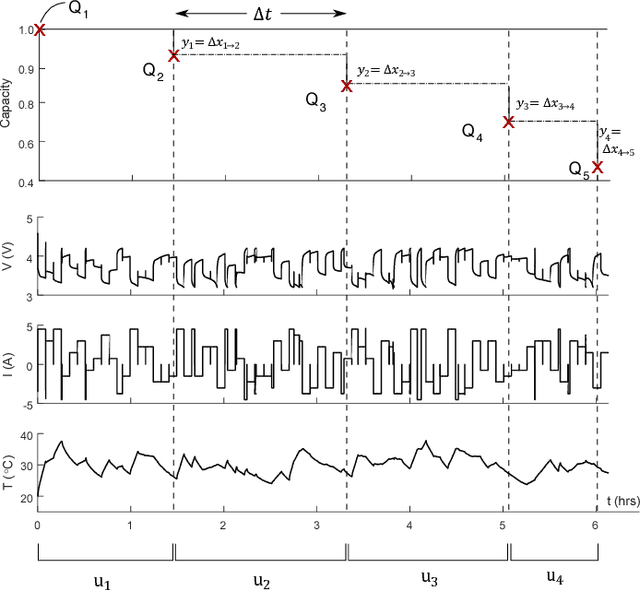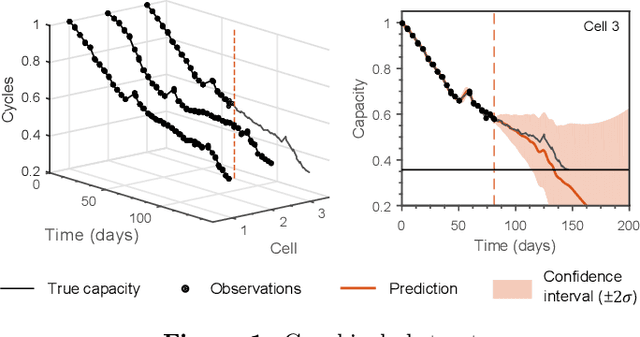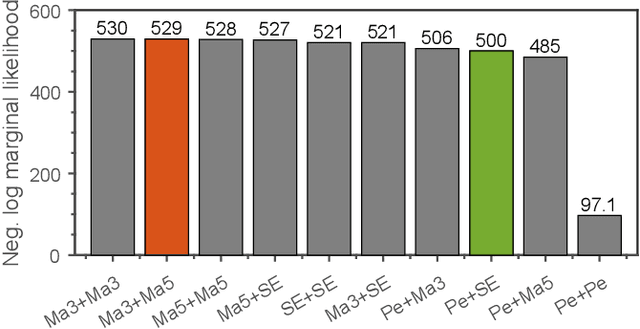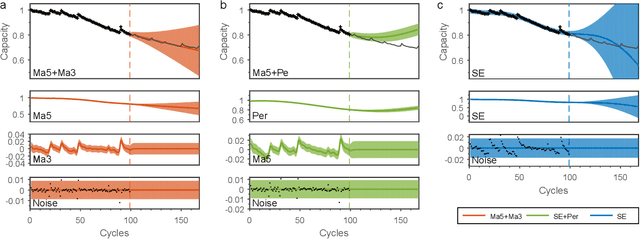Robert R. Richardson
Battery health prediction under generalized conditions using a Gaussian process transition model
Jul 17, 2018



Abstract:Accurately predicting the future health of batteries is necessary to ensure reliable operation, minimise maintenance costs, and calculate the value of energy storage investments. The complex nature of degradation renders data-driven approaches a promising alternative to mechanistic modelling. This study predicts the changes in battery capacity over time using a Bayesian non-parametric approach based on Gaussian process regression. These changes can be integrated against an arbitrary input sequence to predict capacity fade in a variety of usage scenarios, forming a generalised health model. The approach naturally incorporates varying current, voltage and temperature inputs, crucial for enabling real world application. A key innovation is the feature selection step, where arbitrary length current, voltage and temperature measurement vectors are mapped to fixed size feature vectors, enabling them to be efficiently used as exogenous variables. The approach is demonstrated on the open-source NASA Randomised Battery Usage Dataset, with data of 26 cells aged under randomized operational conditions. Using half of the cells for training, and half for validation, the method is shown to accurately predict non-linear capacity fade, with a best case normalised root mean square error of 4.3%, including accurate estimation of prediction uncertainty.
Gaussian process regression for forecasting battery state of health
May 31, 2017



Abstract:Accurately predicting the future capacity and remaining useful life of batteries is necessary to ensure reliable system operation and to minimise maintenance costs. The complex nature of battery degradation has meant that mechanistic modelling of capacity fade has thus far remained intractable; however, with the advent of cloud-connected devices, data from cells in various applications is becoming increasingly available, and the feasibility of data-driven methods for battery prognostics is increasing. Here we propose Gaussian process (GP) regression for forecasting battery state of health, and highlight various advantages of GPs over other data-driven and mechanistic approaches. GPs are a type of Bayesian non-parametric method, and hence can model complex systems whilst handling uncertainty in a principled manner. Prior information can be exploited by GPs in a variety of ways: explicit mean functions can be used if the functional form of the underlying degradation model is available, and multiple-output GPs can effectively exploit correlations between data from different cells. We demonstrate the predictive capability of GPs for short-term and long-term (remaining useful life) forecasting on a selection of capacity vs. cycle datasets from lithium-ion cells.
* 13 pages, 7 figures, published in the Journal of Power Sources, 2017
 Add to Chrome
Add to Chrome Add to Firefox
Add to Firefox Add to Edge
Add to Edge